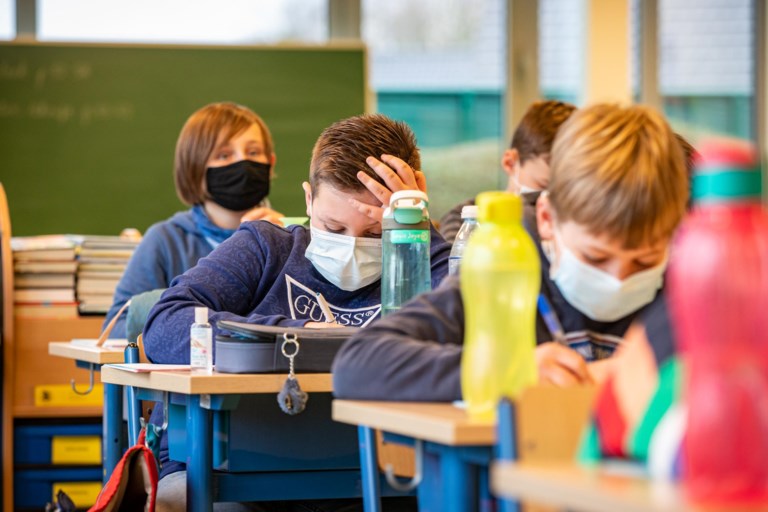Learning delays have been reported in almost all subject areas in Flanders since the start of the pandemic, a trend that continued in 2021, a University of Leuven (KULeuven) study found.
The researchers affirmed that learning achievements – a student's level of success in learning subject matter based on scores – are not as resilient as was hoped and that disruptions to education have long-term consequences.
"Lower learning outcomes are worrisome because lower educational outcomes have previously been associated with several long-term issues, such as lower wages and lower chances of employment," the study stated.
It added that these results give cause for concern in the long term if there is no "resilience" in learning outcomes and no opportunity to make up for education missed; this was the case in 2021.
However, it found that the students from the more "challenging" backgrounds, for example from disadvantaged neighbourhoods or families where the language at home is not Dutch, lagged behind less than the pupils who usually did well.
Maths improving, languages worsening
The report investigated whether the disruption of education caused by the pandemic – which saw much of the 2020 academic year replaced by distance education – had a continued effect on pupils' grades across subjects in 2021.
The findings are based on the results of standardised tests which are taken at the end of the sixth grade at primary schools of Catholic Education Flanders to support the internal quality development of these schools.
Researchers found that although the significant learning delay registered for mathematics earlier this year had stopped, test results dropped even further for Dutch and French in 2021, compared to pre-pandemic attainment.
The researchers say that the worse results for language subjects are partly due to the introduction of face masks at school, as this has made communication between students and teachers more difficult.
Related News
- ‘We’re running dry’: Brussels teacher shortage reaches critical levels
- 'Lowest number' of Walloon pupils studying Dutch at school
"The differences between the learning areas can be intuitively explained by the fact that language acquisition is a cyclical and incremental process, whereby the didactics are often trained on interaction," the report stated.
Despite the findings, the report concluded that the negative effects on the learning outcomes of the most vulnerable pupils were mitigated "through targeted policies and strong teacher attention," including additional investment and "evidence-based interventions" such as tutoring and summer schools.
In areas with summer schools – usually located where the Covid-19 related learning delay was highest in 2020 – the decrease in test results was stopped for all learning subjects.
"These results on standardised tests suggest that summer schools were an effective way to protect the most vulnerable pupils from further learning delay," the researchers highlighted.

